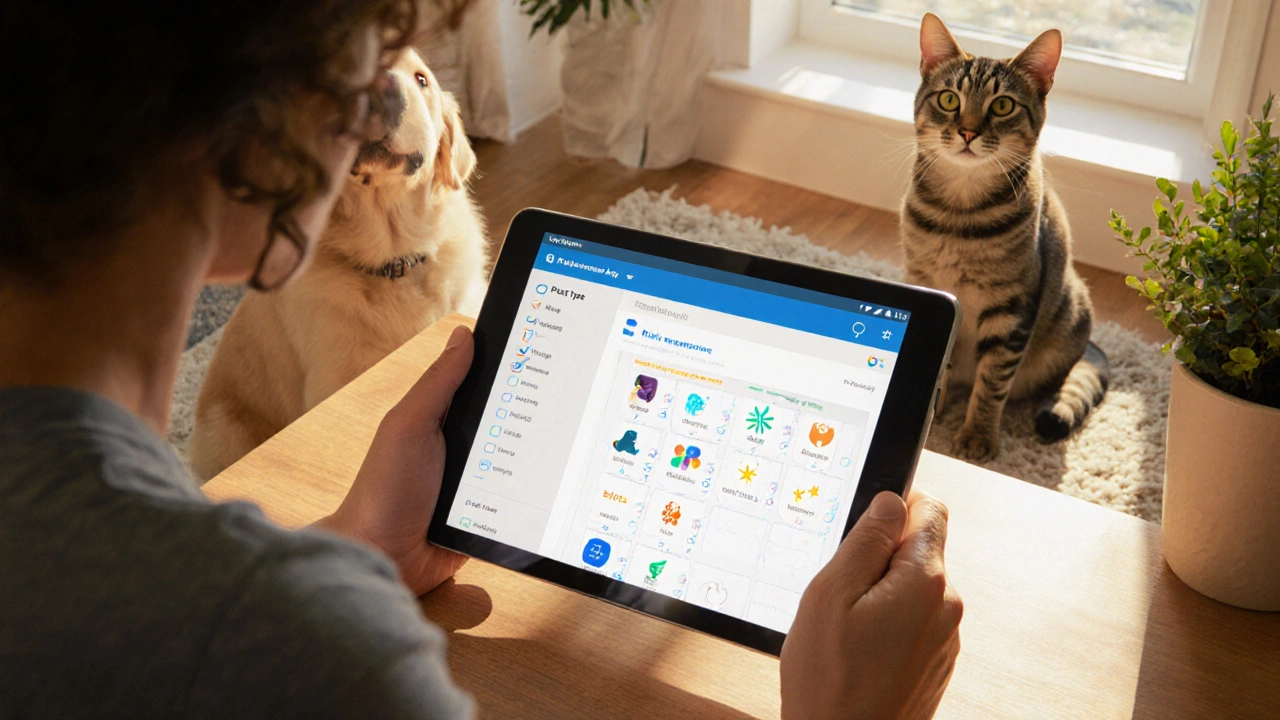Pet Pneumonia Symptoms: What to Watch For and When to Act
When your pet starts coughing, seems tired all the time, or won’t eat like usual, it could be something serious—like pet pneumonia, a lung infection that affects dogs and cats, often caused by bacteria, viruses, or inhaled irritants. Also known as respiratory infection in pets, it’s not just a bad cold—it’s a condition that can turn dangerous fast if ignored.
Most pets with pneumonia show clear signs: a wet or dry cough that doesn’t go away, fast or shallow breathing, fever, loss of appetite, and lethargy. You might notice your dog panting even when resting, or your cat hiding more than usual. In severe cases, gums turn blue or gray—that’s a sign of low oxygen and needs emergency care. It’s not rare for older pets or those with weak immune systems to develop pneumonia after kennel cough, flu, or even choking on food. Even pets that live indoors can catch it from other animals or contaminated air.
What makes pet pneumonia tricky is that it often looks like a simple cold at first. Many owners wait too long, thinking their pet will bounce back on its own. But unlike humans, pets can’t tell you how bad they feel. By the time they’re gasping for air, the infection may already be deep in the lungs. That’s why recognizing the early pet pneumonia symptoms matters more than anything. If your pet’s cough lasts more than a couple of days, or if they’re breathing harder than normal, don’t wait. A vet can confirm it with a stethoscope and X-ray—and start treatment before it becomes life-threatening.
There’s no one-size-fits-all fix. Treatment depends on whether it’s bacterial, viral, or caused by aspiration. Antibiotics, fluids, oxygen therapy, or even hospitalization might be needed. But prevention starts at home: keeping your pet away from smoke, dust, and sick animals, making sure they’re up to date on vaccines, and watching for any change in behavior. The good news? With early action, most pets recover fully.
Below, you’ll find real-world guides from pet owners and vets who’ve dealt with this exact issue—covering how to spot the warning signs, what tests to ask for, how to care for a recovering pet at home, and when to skip the wait-and-see approach. These aren’t generic tips. They’re the kind of details that make the difference between a quick recovery and a trip to the emergency clinic.

Pet Pneumonia: Symptoms, Prevention & Treatment Guide
- Oct, 4 2025
- 17
Learn how to spot pneumonia in dogs and cats, prevent infection, and treat the condition effectively with veterinary care and home tips.
Categories
- Health and Medicine (63)
- Health and Wellness (57)
- Medicine (37)
- Women's Health (11)
- Mental Health (9)
- Men's Health (7)
- Beauty and Wellness (4)
- Health Information (4)
Archives
- February 2026 (9)
- January 2026 (25)
- December 2025 (28)
- November 2025 (25)
- October 2025 (27)
- September 2025 (14)
- August 2025 (3)
- July 2025 (2)
- June 2025 (2)
- May 2025 (3)
- April 2025 (4)
- March 2025 (4)
- online pharmacy
- medication safety
- dietary supplement
- health benefits
- dietary supplements
- generic drugs
- prevention
- fertility
- online pharmacy Australia
- side effects
- QT prolongation
- medication side effects
- diabetes medications
- GLP-1 agonists
- nocebo effect
- brand vs generic
- treatment
- treatment options
- benefits
- connection
